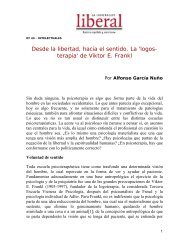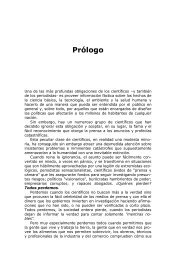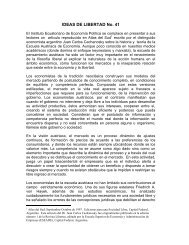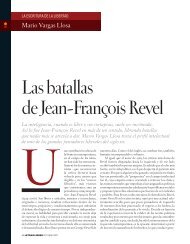Darfur: Blueprint for Genocide - Archipielago Libertad
Darfur: Blueprint for Genocide - Archipielago Libertad
Darfur: Blueprint for Genocide - Archipielago Libertad
You also want an ePaper? Increase the reach of your titles
YUMPU automatically turns print PDFs into web optimized ePapers that Google loves.
CONCLUSION<br />
Insecurity <strong>for</strong> those under threat of genocide and<br />
impunity <strong>for</strong> international crimes is a combination that<br />
allows Gov ernments to get aw ay w ith murder. The<br />
ex istence of an ex clusionary ideology indicates a<br />
genocidal threat. When such a threat is recognised,<br />
RECOMMENDATIONS<br />
1. When an exclusionary ideology ex ists and<br />
civ ilians are being systematically targeted during a<br />
conflict, the situation should be described as<br />
genocidal regardless of whether a consensus is<br />
reached about w hether it is genocide or not.<br />
2. Exclusionary ideology must be taken into account<br />
in the risk assessment of a crisis, as described by<br />
Barbara Harff. It is an important distinction betw een<br />
the objectiv es of the Janjaweed / Gov ernment of<br />
Sudan and the Sudan Liberation Army / Justice and<br />
Equality Mov ement.<br />
3. The systematic targeting of civilians<br />
demonstrates the genocidal characteristics of this<br />
crisis. This should alter the management of the<br />
crisis in relation to security and ending impunity .<br />
4. A no-fly zone should have been imposed at the<br />
beginning of 2004. This should be imposed now,<br />
ev en though it is v ery late.<br />
5. The AU <strong>for</strong>ce should be expanded ten fold and<br />
it’s mandate ex panded.<br />
6. The UK Gov ernment should make clear that it<br />
has resolv e to promote justice. Broadly <strong>for</strong> the<br />
people of <strong>Darfur</strong> by supporting long term equality<br />
and political empowerment.<br />
Conclusion & Recommendations<br />
addressing this duo must become more central to the<br />
management of the crisis. Both hav e been insufficiently<br />
prioritised in managing the crisis in <strong>Darfur</strong>; this has<br />
impeded ef<strong>for</strong>ts to prev ent genocide.<br />
Specifically international law can be upheld by<br />
bringing perpetrators to account. This intention<br />
should hav e been stated from the outset.<br />
7. When the International Commission of Inquiry<br />
publishes it’s findings, the UK Gov ernment should<br />
be prepared to robustly support it at the Security<br />
Council. Following the Iraq war, this will not be so<br />
easy , but it represents an opportunity to support the<br />
UN instruments to prevent genocide.<br />
8. There should be a referral of the <strong>Darfur</strong> situation<br />
by the UN Security Council to the Prosecutor’s<br />
Office of the International Criminal Court.<br />
It is understood that this w ill be difficult, giv en the<br />
opposition of the US and other states to the ICC. If<br />
other states v eto a referral, doing nothing to bring<br />
justice must not be an option. While large tribunals<br />
distant from the country w here crimes w ere<br />
committed may not be the most effectiv e method,<br />
other alternativ es should be pursued.<br />
9. Long term, a comprehensive plan should be<br />
agreed to rev erse the underlying causes of the<br />
crisis, namely the inequality and marginalisation<br />
w ithin <strong>Darfur</strong>. A significant dev elopment package is<br />
required that benefits all groups equally.<br />
10. Political empow erment through a federal system<br />
in Sudan may prevent a mov ement tow ards<br />
autonomy in the West w hich would lead to greater<br />
conflict and the fragmentation of Sudan in the<br />
future.<br />
32




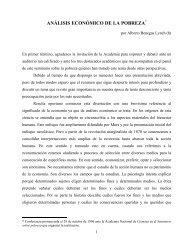
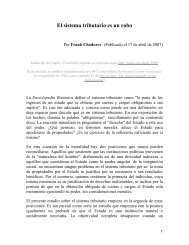
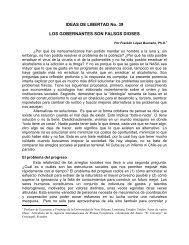
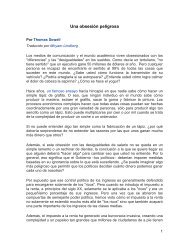
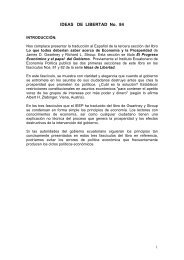
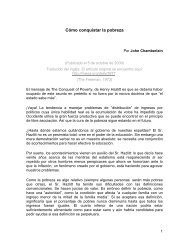
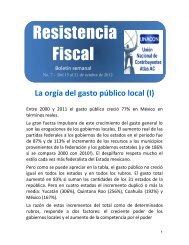
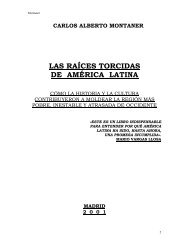
![0091 Stewart - La magia y el misterio del comercio [parte I].pdf](https://img.yumpu.com/16943279/1/169x260/0091-stewart-la-magia-y-el-misterio-del-comercio-parte-ipdf.jpg?quality=85)
